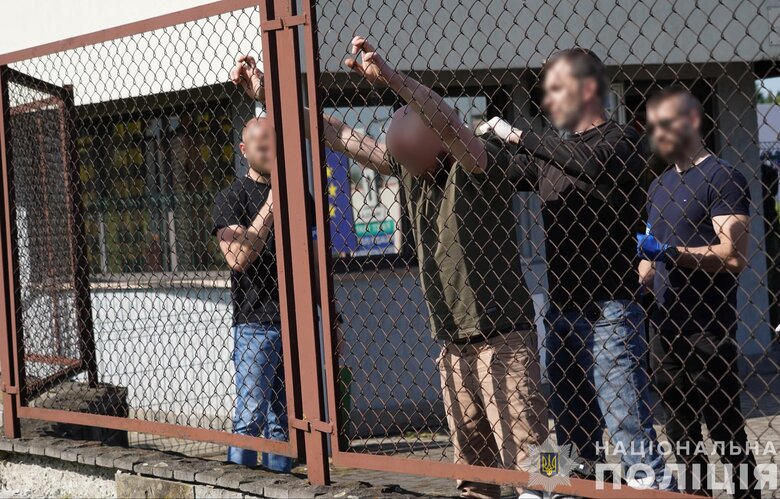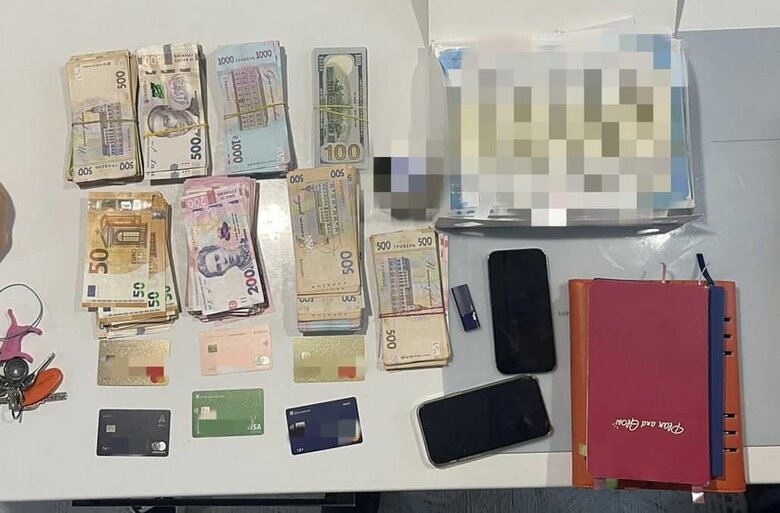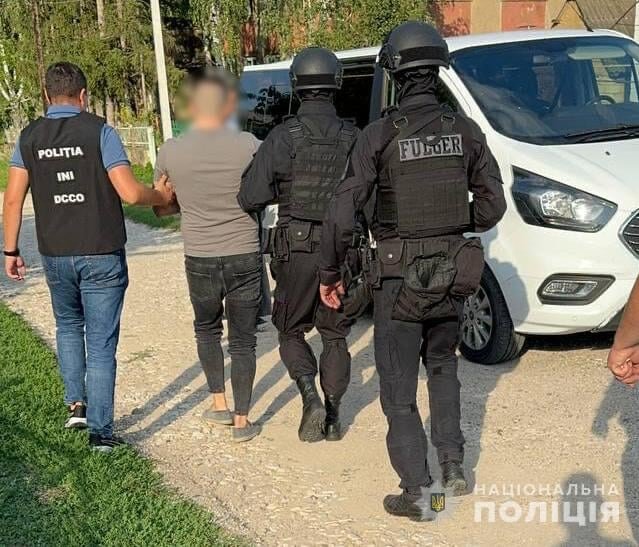С началом полномасштабной войны уровень преступности в Украине стремительно снизился, но мошенники не только быстро оправились и разнообразили свои схемы и подходы Среди их жертв и гражданские, и военные
И если сначала в основном они зарабатывали на том, что брали предоплату на необходимые военным амуницию или автомобили и исчезали, то сейчас еще и предлагают фейковые вакансии тем, кто возвращается с фронта, уговаривая оплатить обучение или литературу, без которых якобы невозможно трудоустройство
Какие схемы стали самыми распространенными, как от них страдают военные и их семьи, что нужно учитывать, чтобы обезопасить себя от аферистов, которые зарабатывают на сборах для войска и пострадавших от войн

ФАЛЬШИВЫЕ БЛАГОТВОРИТЕЛИ И РАБОТОДАТЕЛИ
То, что мы оказались не готовы к полномасштабной войне, некоторые преступники использовали мгновенно Потому что понимали, что война создает атмосферу стресса, неопределенности и тревоги, в которой люди становятся более уязвимыми к манипуляциям Поэтому в первые же месяцы полномасштабного наступления популярной стала схема, связанная с эвакуацией людей, которые пытались самостоятельно выехать из зоны боевых действий или перебраться в более безопасное место из прифронтовых регионов Она сводилась к тому, что людям обещали помочь, брали предоплату, а потом просто исчезали со связи
Еще одним вариантом была аренда жилья, рассчитанная на людей, у которых есть животные В объявлениях, которые размещали в интернете якобы брокеры, выставлялись фотографии частных домов, владельцы которых готовы были принять семью с домашними любимцами Тоже просили предоплату в качестве задатка А когда люди приезжали на место, выяснялось, что на самом деле такого дома с фотографий не существует
Так же с первых дней аферисты включились в сборы на нужды военных Или же сами собирали средства, или же видели, что собирают военные или волонтеры, и заходили к ним на страницу, чтобы предложить что-то купить на «очень выгодных условиях»
Сейчас же, как рассказали «Цензор.НЕТ» в Главном следственном управлении Нацполиции, одной из самых распространенных схем являются фальшивые благотворительные организации Мошенники создают для таких организаций даже вебсайты, чтобы они выглядели, как настоящие благотворительные фонды, или страницу в соцсетях и просят деньги на «помощь» пострадавшим от войны Люди, желая помочь, часто откликаются на такие сообщения в сети, не проверяя их достоверность
По словам заместителя начальника Главного следственного управления Национальной полиции Евгения Колесника, в последнее время правоохранители активно выявляют и пресекают фейковые сборы средств, которые появляются после массированных ракетных обстрелов «К примеру могу привести работу полицейских Кировоградщины, которые задокументировали факт завладения средствами у гражданина, который, пытаясь оказать помощь детям, пострадавшим в результате ракетного удара по больнице „Охматдет“, перешел по присланной ему мошенником фишинговой ссылке, после чего потерял со своего банковского счета более 12 тысяч гривен
А следователи Запорожья пресекли преступную деятельность местного жителя, который под предлогом сбора средств на помощь семьям, погибшим в результате ракетного обстрела города, состоявшегося год назад, завладел денежными средствами граждан на сумму 280 тысяч гривен», — рассказал Евгений Колесник
Еще одну группу, члены которой решили подзаработать на войне, будут судить в Киеве Эта группа действовала в течение 10 месяцев в 2022-2023 годах, собирая пожертвования якобы для помощи детям, пострадавшим во время войны, завладев средствами на сумму почти 11 миллионов гривен
Фальшивые благотворительные организации также создаются, чтобы собирать средства для помощи военнослужащим и их семьям Они могут обращаться к людям через социальные сети, электронную почту или даже лично, побуждая к пожертвованиям
Еще одна популярная схема — это фальшивые предложения о работе Мошенники публикуют объявления о хорошо оплачиваемых вакансиях или работе из дома, которая кажется очень привлекательной Когда человек реагирует на такое предложение, ему могут предложить платить за обучение, материалы или другие услуги, которые на самом деле никто предоставлять не планирует — это просто способ выкачивания денег Как отмечают в Нацполиции, с такими предложениями мошенники пытаются выходить и к военным, которые демобилизовались по состоянию здоровья или по каким-то другим причинам, и ищут работу
«Фишинг» также остается очень распространенным Мошенники присылают электронные письма, SMS или сообщения в социальных сетях, которые имеют вид официальных сообщений от банков, платежных систем или других организаций, с целью получения конфиденциальной информации, такой как пароли или банковские реквизиты
Не менее актуальным является обман с идентификационными данными В этих случаях могут использовать фальшивые документы или поддельные идентификационные данные для открытия кредитных счетов, получения кредитов или совершения покупок от имени жертвы
Также все еще срабатывает схема обмана по поводу технической поддержки Когда воры выдают себя за представителей технической поддержки известных компаний и просят доступ к компьютеру или информации о банковских счетах, обещая решение якобы проблем с программным обеспечением или оборудованием
Отвечая на вопрос о том, от каких схем страдают военные и их семьи, кроме общения с фальшивыми благотворителями, в ГСУ назвали несколько Первая — поддельные сообщения о выплатах Речь идет о случаях, когда человеку могут присылать поддельные сообщения о якобы выплатах, пенсии или компенсации, которые нужно получить через специальные вебсайты Они просят военнослужащих или их родственников ввести личные данные или даже заплатить комиссию для получения средств
Еще одна схема — аферы с недвижимостью Военнослужащим предлагают приобрести недвижимость на выгодных условиях, используя поддельные документы или вообще не существующую собственность После получения предоплаты такие «продавцы» исчезают.
Также распространены предложения брать быстрые кредиты или займы на выгодных условиях При этом, те, кто это предлагает, требуют предоплату или сборы за обработку документов, после чего тоже исчезают Поэтому, прежде чем переходить по какому-либо посланию и на что-либо соглашаться, стоит проверить информацию
Рассказывая о ситуациях, когда жертвами мошенников становятся военные, в ГСУ Нацполиции приводят примеры, когда, получив конфиденциальные данные военнослужащих, мошенники снимали с их счетов средства Один из таких случаев был на Днепропетровщине, где разоблачили группу лиц, которые сняли со счета военного 197 тысяч гривен А следователи в Черкасской области в ходе расследования уголовного производства доказали виновность местного жителя, который путем несанкционированного использования программных продуктов, совершил ряд операций с банковскими счетами военнослужащего, в результате чего тот потерял почти 160 тысяч
Такие преступления совершаются и в отношении родных погибших военнослужащих Одна из таких ситуаций произошла на Кировоградщине, где был задокументирован факт завладения средствами, которые получила жена погибшего воина в качестве помощи от государства Преступник позвонил женщине, назвался представителем службы безопасности банка Получив конфиденциальные данные потерпевшей, забрал с ее счета 3 миллиона

КАК ПРАВИЛЬНО ДОНАТИТЬ
Проверять сборы в помощь военным или пострадавшим от войны и их авторов очень важно, чтобы убедиться, что ваши средства действительно пойдут на благотворительные цели, отмечают правоохранители Вот несколько рекомендаций, как это сделать
Во-первых, проверяйте авторов сборов Это можно сделать, исследовав их профили в социальных сетях или на платформах, где проводится сбор средств Ищите отзывы и рекомендации от других людей, которые уже делали пожертвования Если автор сбора является официальной организацией, найдите ее сайт и проверьте информацию о ней, в частности контактные данные и лицензии
Во-вторых, проверяйте сами платформы, на которых проводятся сборы Известные и надежные платформы имеют свои процедуры проверки пользователей и сборов, что помогает уменьшить риск мошенничества Читайте отзывы об этих платформах и убедитесь, что они имеют хорошую репутацию
В-третьих, обращайте внимание на прозрачность сбора Надежные организаторы предоставляют подробную информацию о цели сбора средств, как они будут использованы и каким образом можно получить отчет об использовании средств Если информация нечеткая или отсутствует, это может быть признаком мошенничества
Также можно обратиться к официальным организациям, которые оказывают помощь военным, и узнать, поддерживают ли они конкретный сбор Многие известные благотворительные фонды и волонтерские организации имеют свои программы помощи военным, и делать пожертвования через них может быть более безопасно
Не стесняйтесь задавать вопросы авторам сборов Спросите их о деталях проекта, кому конкретно будет оказана помощь, как можно подтвердить, что средства действительно дошли до получателей Настоящие организаторы собрания всегда готовы предоставить всю необходимую информацию и ответить на ваши запросы
Так же правоохранители советуют обращать внимание на безопасность собственных страниц в соцсетях, особенно военным Поскольку такие ситуации, когда взламывают страницы военных в социальных сетях и просят деньги от их имени, тоже случаются Мошенники используют похищенные учетные записи для того, чтобы обращаться к друзьям и родственникам пострадавших с просьбой о финансовой помощи, создавая иллюзию срочности и опасности Это может приводить к потере денег и распространению конфиденциальной информации
Как пояснили нам в Нацполиции, чтобы уберечься от таких мошенничеств, важно придерживаться нескольких рекомендаций Во-первых, используйте сложные пароли, которые включают буквы, цифры и специальные символы, и регулярно их меняйте Во-вторых, включите двухфакторную аутентификацию на всех своих учетных записях, чтобы дополнительно защитить их от несанкционированного доступа В-третьих, будьте внимательны к подозрительным сообщениям и запросам, даже если они поступают от знакомых людей Если получаете просьбу о помощи, всегда старайтесь подтвердить ее подлинность, позвонив или написав непосредственно этому лицу
Также стоит ограничить доступ к личной информации на своих страницах в социальных сетях, настроив конфиденциальность так, чтобы только доверенные лица могли видеть ваши публикации и данные И наконец, будьте осторожны с подозрительными ссылками и приложениями, которые могут содержать вредоносное программное обеспечение Если есть подозрение, что вашу страницу взломали, немедленно измените пароли и сообщите в службу поддержки социальной сети

КОГДА ВЫ ИЩЕТЕ ВОЕННОГО, МОШЕННИКИ ИЩУТ ВАС
Через соцсети мошенники также могут постучаться в личные родственникам военных Это бывает в случаях, когда военные долго не выходят на связь и родные их разыскивают, размещая посты с просьбой предоставить информацию, если кто-то что-то знает
Недавно, в интервью «Цензор.НЕТ» Уполномоченный по вопросам лиц, пропавших без вести при особых обстоятельствах Артур Добросердов рассказал, что есть случаи, когда родственники военных сообщают, что им звонят какие-то люди, говорят, что якобы военный в плену, просят за информацию деньги «Мошенники видят пост в соцсетях о том, что человек ищет пропавшего военного, понимают, в каком он психо-эмоциональном состоянии, и этим пользуются
Дособирают информацию из других открытых источников, потом готовят какую-то свою версию событий и звонят автору поста Например, говорят, что военный в плену и якобы он в тяжелом состоянии, ему надо делать операцию Затем называют сумму, которую родные бойца должны перевести на банковскую карточку Говорят, что ничего не будут делать, пока им не сбросят деньги И, к сожалению, многие семьи стали жертвами таких мошенников», — отметил Добросердов
После этого разговора я спросила у полицейских, что делать человеку, который ищет своего близкого через соцсети и на него вышли такие мошенники Потому что с одной стороны понятно, что люди будут писать посты, когда в отчаянии кого-то из родных ищут С другой — правоохранители имели бы возможность задокументировать действия таких негодяев, если бы человек понимал, к кому из них обратиться, с кем посоветоваться в такой ситуации, и был уверен, что эта коммуникация не повредит в поисках
Первый совет, который я услышала от правоохранителей в ответ на свой вопрос: звонить на «102» или обратиться в райотдел полиции Конечно, так тоже можно сделать Но вряд ли многие люди к такому совету прислушаются и получат такую реакцию, которая бы им помогла быстро отреагировать на действия тех, кто вышел на связь, чтобы что-то сообщить о военном Поэтому спросила в подразделении киберполиции, можно ли в таких случаях обращаться туда
«Можно обращаться в наш отдел непосредственно, на такие обращения будем реагировать сразу, — объяснил начальник отдела противодействия разновидностям онлайн-мошенничества Департамента киберполиции Александр Ульяненков, — Можно прийти и сообщить, а можно заявление подать на сайте, через электронные обращения, мы ежедневно их анализируем Потому что, например, по одному из кейсов родственники военного, которые столкнулись с таким мошенничеством, находятся за границей и не могут приехать, но мы его тоже отрабатываем
Так же военные могут нам сообщать о преступлениях совершенных в отношении них, через электронные обращения, если нет возможности прийти лично и написать заявление В описательной части письма надо указать, что речь идет о военнослужащем или семье военного Мы все эти обращения берем в работу и параллельно передаем информацию в территориальные подразделения полиции, потому что мы не можем открыть уголовное производство — это прерогатива следствия»
Комментируя такие ситуации, он отметил, что поводы, под которыми пишут родным военных, могут быть разные «Бывает, что жене военного пишет какой-то человек, который представляется командиром военного подразделения Сообщает, что знает, где ее муж и может передать ему передачку, но мне туда ехать 700 километров, перешлите на бензин 4 тысячи Или придумывают другие поводы, чтобы человек им поверил и сбросил деньги Деньги обычно небольшие, возможно, рассчитано на то, что не все люди захотят обращаться в полицию Но хоть и берут якобы мизер, за счет количества обманутых людей, нормально зарабатывают Поэтому очень важно о таких случаях сообщать»

«ЛОВИЛИ» ЖЕРТВ НА ФОТО ЗНАМЕНИТОСТЕЙ
Комментируя мошеннические схемы, правоохранители также обращают внимание на то, что во время войны реализовывать их на территории нашей страны пытаются и члены международных преступных организаций, в состав которых входят иностранцы Так в прошлом году украинские правоохранители экстрадировали в Чехию членов преступных группировок, которые обманули сотни граждан этой страны, находясь на территории Украины Это две группы, каждая из которых создала колл-центры
По словам заместителя начальника Главного следственного управления Нацполиции Артема Шевчишена, согласно нормам Уголовного процессуального законодательства Украины правоохранительные органы иностранных государств не имеют права самостоятельно проводить любые следственные (розыскные) действия на территории Украины Проведение таких следственных действий возможно только правоохранительными органами Украины на основании запроса о предоставлении международной правовой помощи, в том числе с участием представителей правоохранительных органов других государств Но указанная процедура занимает определенное время
Именно поэтому преступники совершают правонарушения, находясь на территории Украины, понимая что для их установления и задержания нужно немало времени Также преступники не совершают преступлений в отношении граждан Украины, поскольку тогда правоохранительные органы Украины смогут их задержать и привлечь к ответственности по отечественному законодательству
Возможно, рассчитывают и на то, что правоохранители больше будут привлечены к выполнению задач в зоне боевых действий, поскольку СМИ постоянно пишут об их вовлеченности в бригады, которые воюют
«В первом случае у задержанных была телефонная база граждан Чешской Республики, которых мошенники обзванивали и обманывали В этом им помогали определенные психологические навыки и умение вести разговор, манипулировать информацией, талант убеждать лиц совершать необходимые им действия, — рассказал Артем Шевчишен, — Во втором случае жертв выбирали с помощью баз данных, которые купили в сети «Интернет» у неустановленных лиц, после чего методом «холодных звонков» всем, кто возьмет трубку, предлагали выполнять их указания»
Во время звонков мошенники, которые входили в состав одной из групп, пользовались технологией спуфинга, то есть подменой телефонного номера на любой нужный Представляясь сотрудниками службы безопасности банковского учреждения, сообщали жертвам, что их банковский счет взломан, а для сохранения средств нужно временно перевести их на другой, предоставленный преступниками «безопасный» счет
Выявить и задержать группу удалось с помощью комплекса следственных и процессуальных действий, в частности сведений предоставленных чешскими правоохранителями о движении средств потерпевших, подключение к устройствам потерпевших, после чего на территории Украины отработав круг лиц и сетевой трафик информации удалось установить местонахождение причастных к мошенническим схемам и их задержать
А на днях правоохранители Украины, Молдовы и Румынии одновременно провели спецоперацию для ликвидации мошеннической схемы, несколько из организаторов которой были украинцы
Действовали злоумышленники по следующей схеме: на интернет-сайтах создавали объявления, где предлагали гражданам возможность безопасного, быстрого, а главное высокого заработка после осуществления небольших инвестиций Изображенные в рекламных объявлениях знаменитости или официальные логотипы крупных местных банков вызывали у потенциальных жертв доверие, что дало фигурантам возможность обмануть большое количество лиц Реклама содержала ссылку на вебсайт, после перехода на который потенциальным «клиентам» предлагали быстро получить доход
Интересно, что используя доверие людей как инструмент, мошенники проверяли сотрудников колл-центров на полиграфе
Война делает нас уязвимыми И криминалитет это умело используете Стоит это учитывать, когда вы хотите кому-то помочь или заработать немного средств для себя


